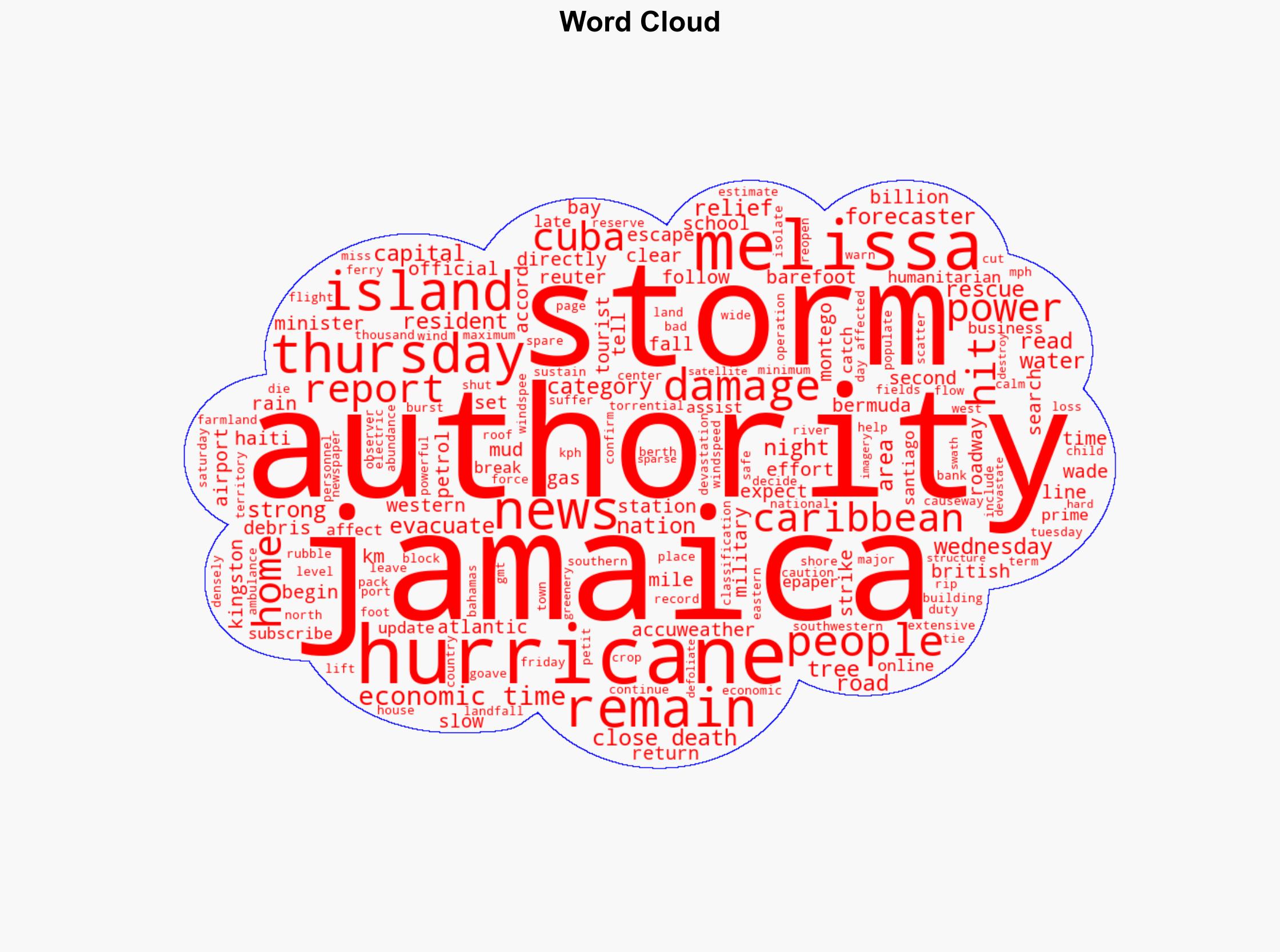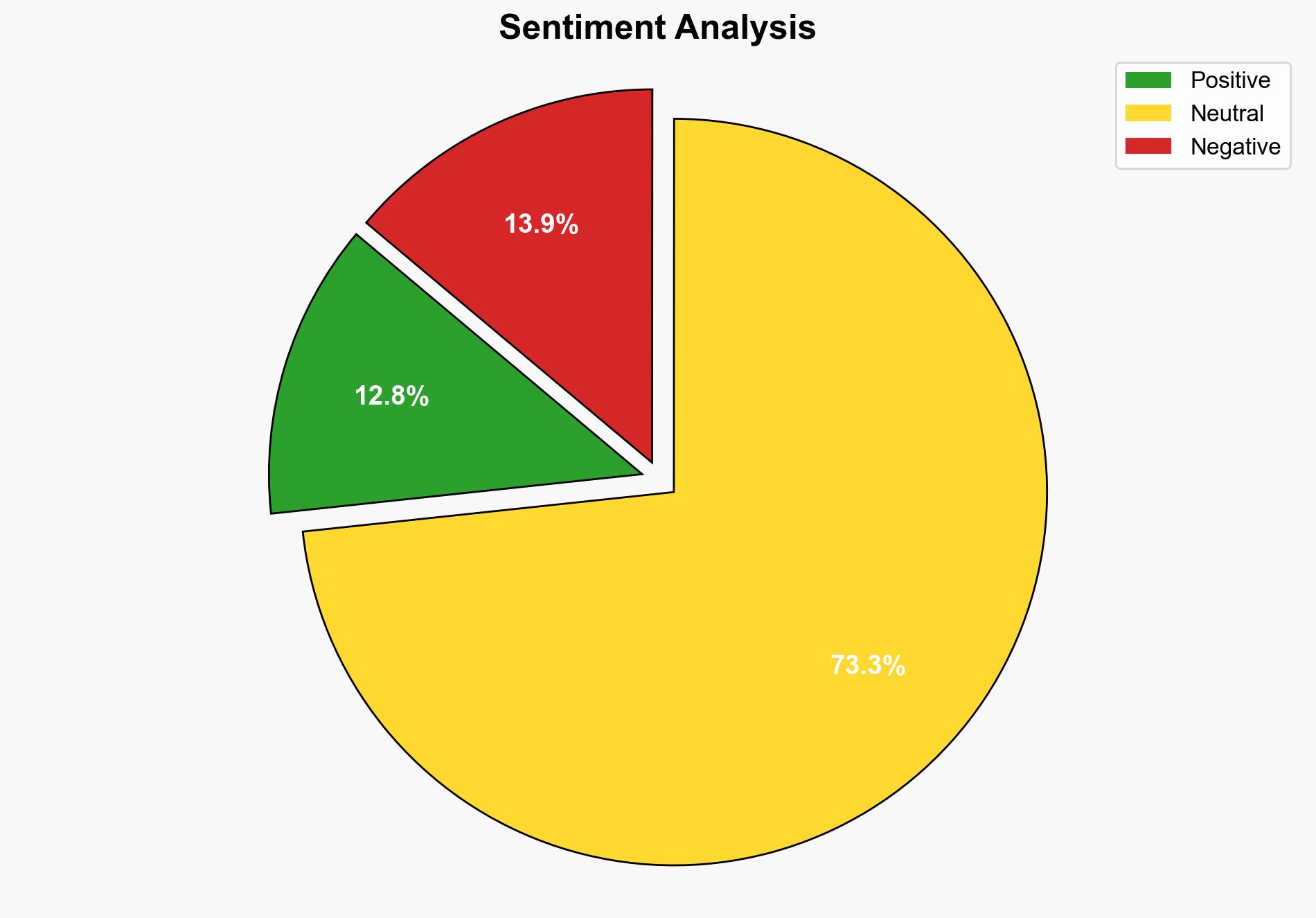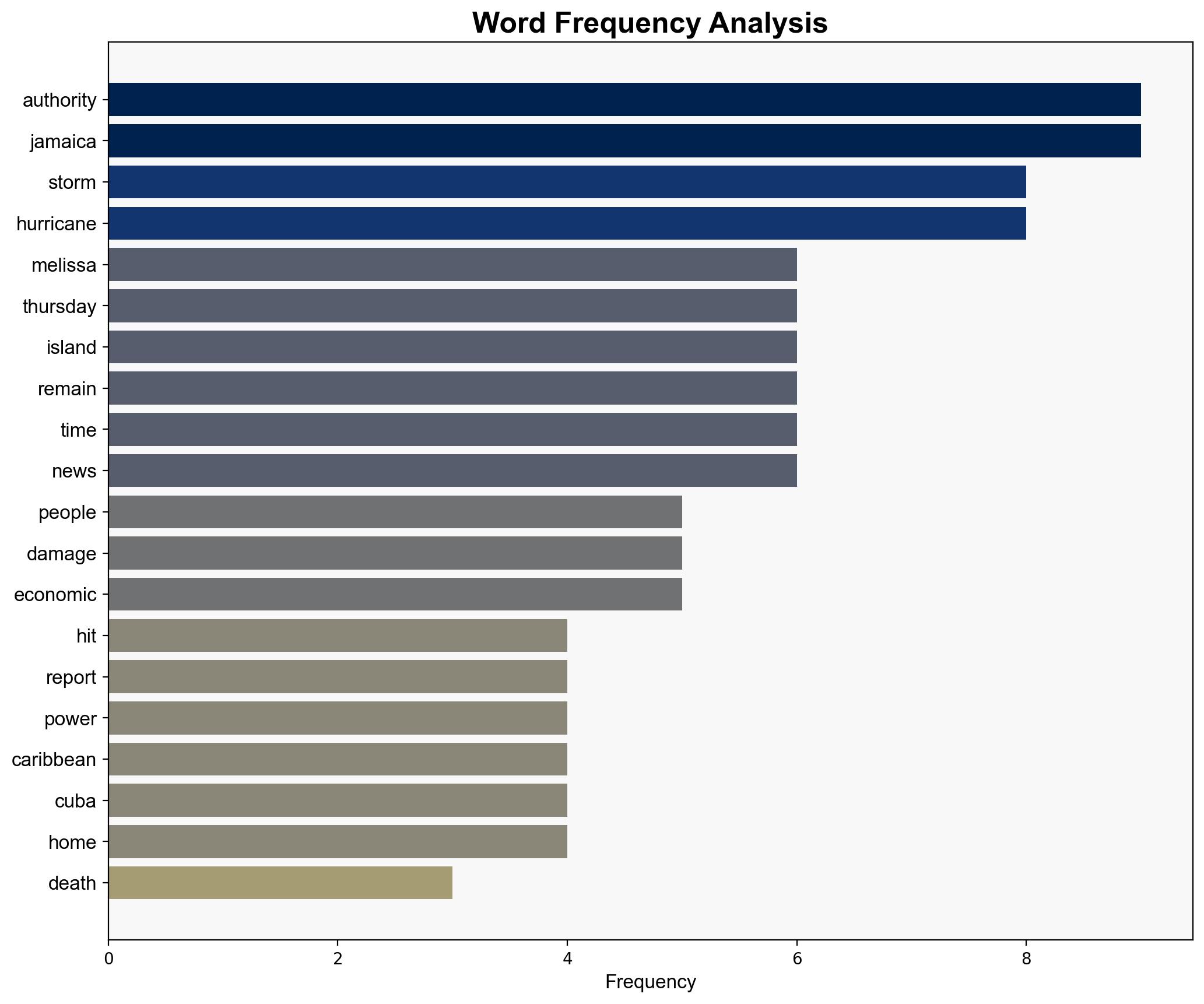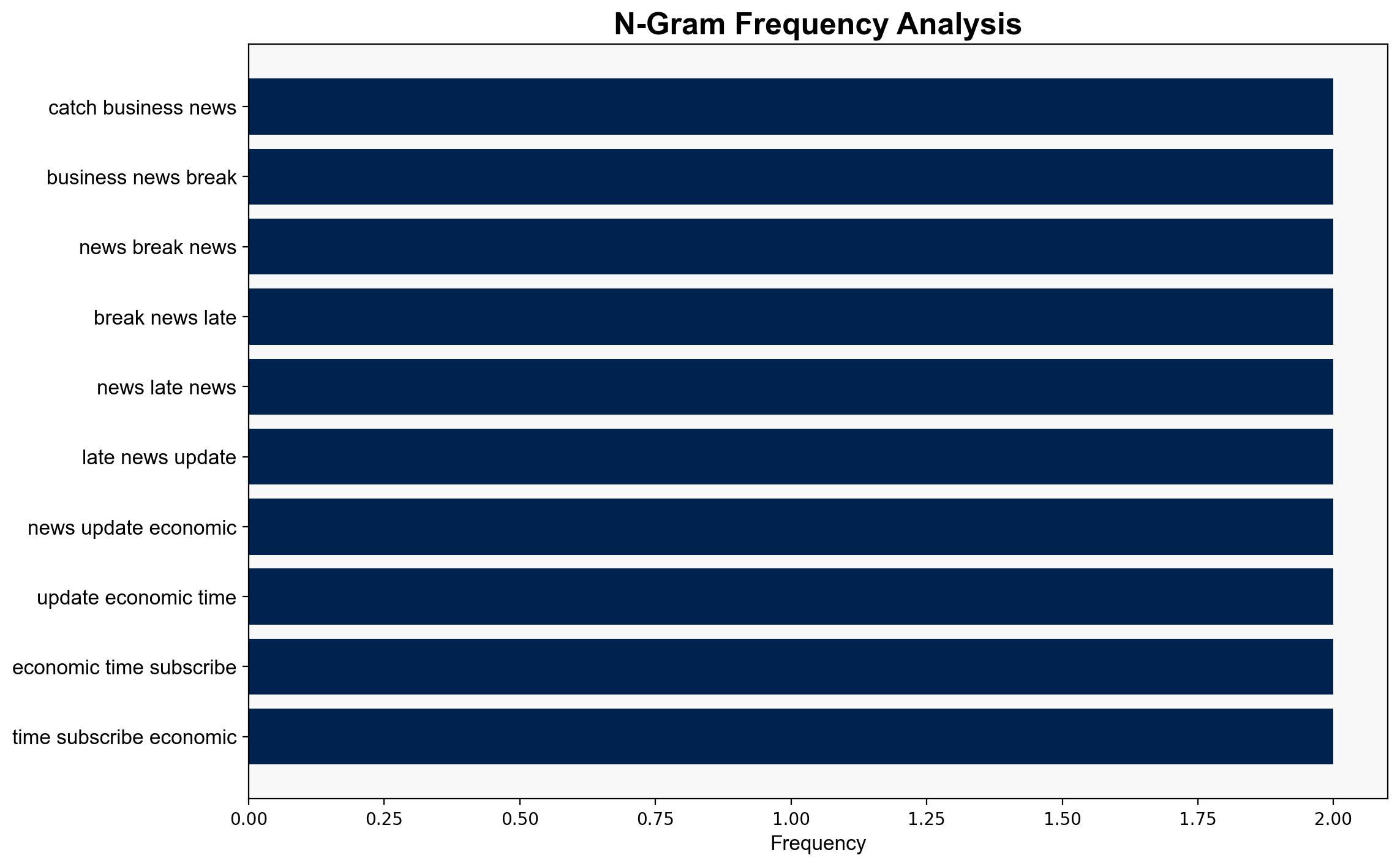Hurricane Melissa leaves 49 dead in Caribbean churns north – The Times of India
Published on: 2025-10-31
Intelligence Report: Hurricane Melissa leaves 49 dead in Caribbean churns north – The Times of India
1. BLUF (Bottom Line Up Front)
Hurricane Melissa has caused significant destruction across the Caribbean, resulting in 49 fatalities and extensive infrastructure damage. The most supported hypothesis is that climate change is exacerbating the intensity and frequency of hurricanes, leading to increased economic and humanitarian impacts in vulnerable regions. Confidence level: High. Recommended action includes enhancing regional disaster preparedness and advocating for international climate action.
2. Competing Hypotheses
1. **Hypothesis A**: The increased intensity and frequency of hurricanes like Melissa are primarily due to climate change, specifically the warming of ocean waters caused by greenhouse gas emissions.
2. **Hypothesis B**: The severity of Hurricane Melissa is within historical norms, and its impact is primarily due to inadequate infrastructure and emergency preparedness in affected regions.
Using ACH 2.0, Hypothesis A is better supported by the correlation between rising ocean temperatures and hurricane intensity, as well as the calls from Caribbean leaders for climate action. Hypothesis B lacks sufficient evidence, given the historical data on increasing hurricane intensity.
3. Key Assumptions and Red Flags
– **Assumptions**: Hypothesis A assumes a direct link between climate change and hurricane intensity, while Hypothesis B assumes that infrastructure inadequacy is the primary factor.
– **Red Flags**: Potential bias in attributing all hurricane intensity to climate change without considering natural variability. Missing data on specific preparedness measures in affected regions.
4. Implications and Strategic Risks
The pattern of increasing hurricane intensity poses a significant threat to economic stability and public safety in the Caribbean. There is a risk of cascading effects, including economic downturns, increased migration, and geopolitical tensions over climate reparations. The psychological impact on affected populations may lead to social unrest.
5. Recommendations and Outlook
- Enhance regional disaster preparedness through infrastructure investment and emergency response training.
- Advocate for international climate action and support for affected regions through debt relief and financial aid.
- Scenario Projections:
- Best: Strengthened infrastructure and international support mitigate future hurricane impacts.
- Worst: Continued inaction leads to increased fatalities and economic losses.
- Most Likely: Incremental improvements in preparedness with ongoing climate challenges.
6. Key Individuals and Entities
– Alfred Hine: Resident affected by the hurricane.
– Chevelle Fitzgerald: British tourist impacted by the storm.
– Daryl Vaz: Energy Minister involved in the response efforts.
7. Thematic Tags
national security threats, climate change, disaster preparedness, regional focus




